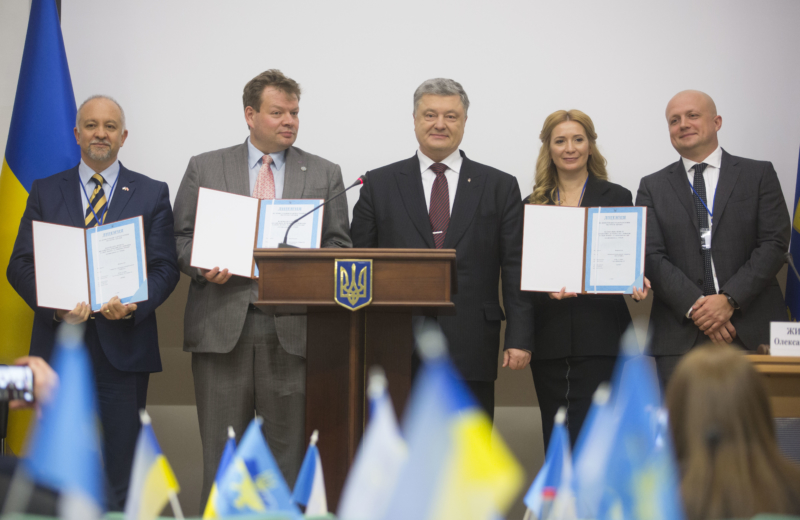The three biggest Ukrainian phone carriers – Kyivstar, Vodafone Ukraine, and lifecell – bid for 4G licenses at the second auction on March 6.
The mobile operators bid Hr 5.4 billion, or about $200 million, for three different lots at the auction held to sell radio frequencies around the 1800 MHz band, which is suitable for rolling out 4G.
The prices for each lot started from about Hr 265 million, but went up. Kyivstar won the first lot, paying for it Hr 612 Million. Vodafone succeeded in the second bargaining, bidding Hr 742 million. Then, Kyivstar won the last lot as well with its Hr 900 million offer. This has left lifecell empty-handed after the auction.
Lifecell used the right of priority purchase but didn’t take part in the auction, not offering their prices for other lots. Nevertheless, the carrier will get one lot guaranteed by the State Center of Radio Frequencies, paying for it Hr 795 million.
In total, including the first auction held in January to sell radio frequencies around the 2600 MHz band, the three top Ukrainian mobile operators is to pay about Hr 8 billion, which is $300 million.
Ukraine’s President Petro Poroshenko thinks Ukrainians will feel the difference between available now in Ukraine 3G and 4G that is to appear in big cities – Kyiv, Lviv, Dnipro, Kharkiv, Odesa – by May.
“During this year, 60 percent of Ukrainians will receive significantly a better mobile internet service, significantly faster,” Poroshenko wrote on Facebook on March 6. “It’s like to move from a handcar to a modern high-speed express.”
Kyivstar CEO Peter Chernyshov is pleased with the results of the auction, while Kyivstar is to pay the biggest sum of money of all the operators.
“It’s the quantity of frequencies which we need for establishing 4G in all Ukraine,” Chernyshov said. “We have the biggest users network – 26.5 million people. Our network was the best and it will remain the best.”
The mobile operators have paid so much money for these radio frequencies around the 1800 MHz band, because they are the most commercially attractive for the companies, according to independent telecom consultant Roman Khimich. The carriers will be able to empower their networks and to earn more money with new tariffs.
“Lifecell left the race for the frequencies because they have the smallest amount of users,” Khimich told the Kyiv Post. “In proportion to the users, lifecell received not fewer frequencies than others.”
The Kyiv Post’s technology coverage is sponsored by Ciklum and NIX Solutions. The content is independent of the donors.



